
KToshiba
Source (link to git-repo or to original if based on someone elses unmodified work):
Features a Graphical User Interface (UI) highly integrated with KDE, managing those function keys not handled by KDE (Screen lock, TouchPad toggle, Battery profiles, Zoom keys and Keyboard backlight).
Also provides a System Settings module for easy access and configuration of Toshiba laptops related hardware like TouchPad, Accelerometer, Keyboard backlight, Sleep Utilities and more.
New in this release:
USB Legacy Emulation
SATA Interface Setting
Built In LAN
Optical Disc Device Power
Changes in this release:
We are now using sysfs to parse DMI info instead of dmidecode
Moved the toshiba_acpi device check to constructor to avoid printing a lot of messages about the device not being found
KToshHelper is now used to set the HDD protection level and unload heads
Replaced icons with better quality ones, as the provided ones were blurry
Changed the Power Save tab, now we can fine tune the settings based on the current battery profile selected
We are now using libmnl for netlink communication
Dropped UDev and kernel-includes dependencies
Added ktoshiba_debug.{h, cpp} files, adding a "ktoshiba" logging category
Fixes in this release:
Fixed the Keyboard Functions mode not showing the reboot message
Fixed a segfault when exiting KToshiba and no driver was loaded
Fixed the Sleep & Charge default setting in KCM
Fixed the Cooling Methods (the ones currently reported were wrong...)
Fixed a double delete of the FnActions and QTimer classes in KToshiba class
Fixed FnActions class not re-loading the configuration file correctly
Fixed the HDD notification appearing twice
Fixed the keyboard backlight DBus function
Fixed the setEcoLED function not (de)activating the LED properly
NOTE: KToshiba now requires a newer version of toshiba_acpi driver, which is included on what will become the kernel 4.5, see the file README.toshiba_acpi for upgrading instructions.







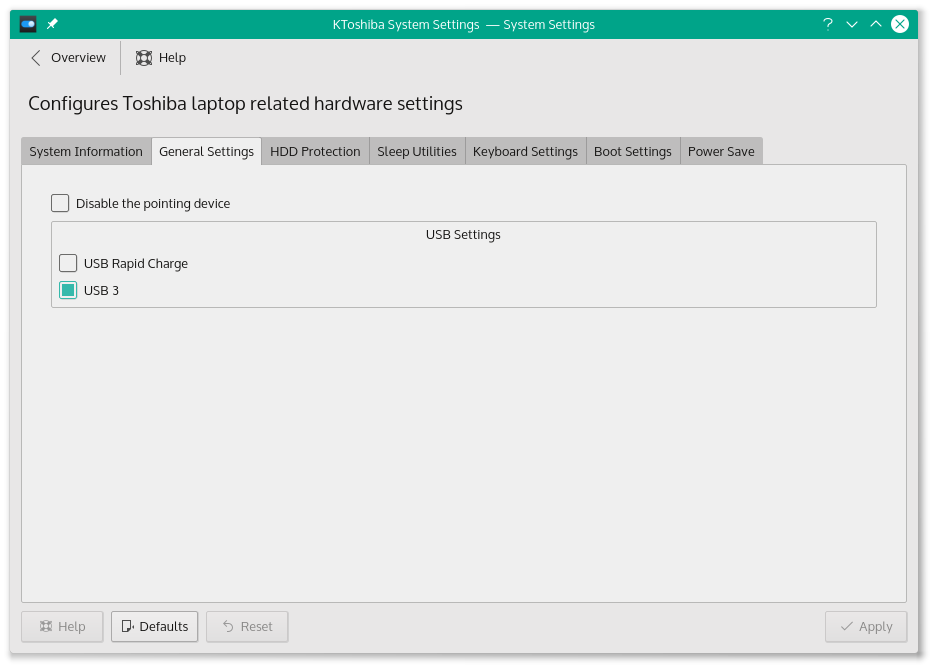
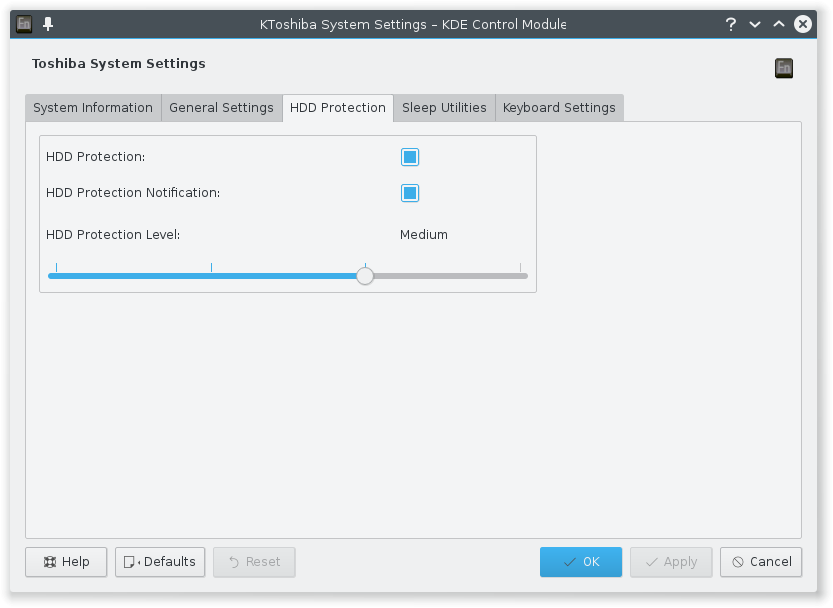
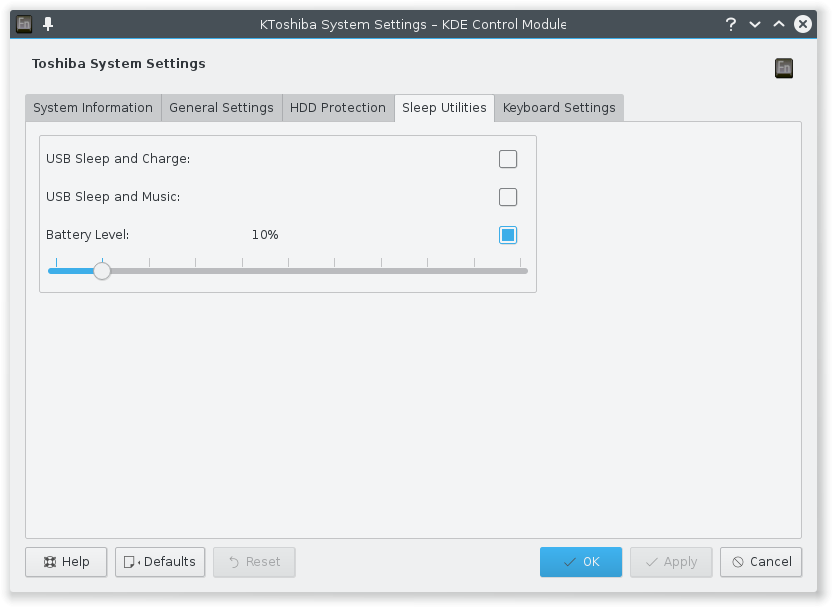




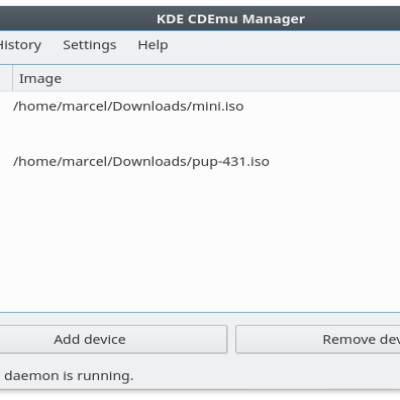
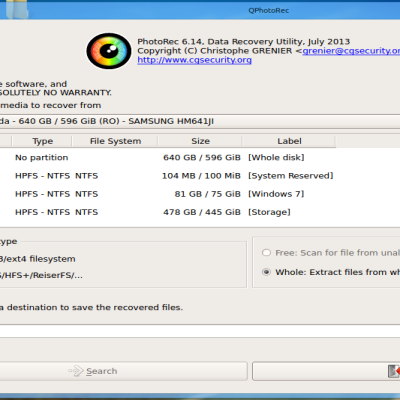
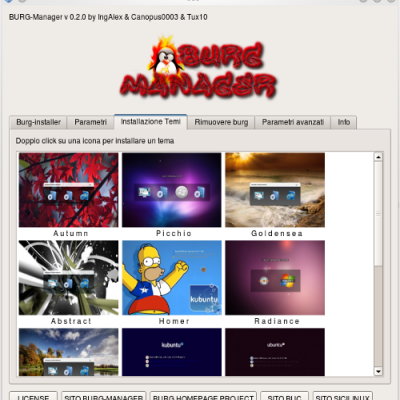
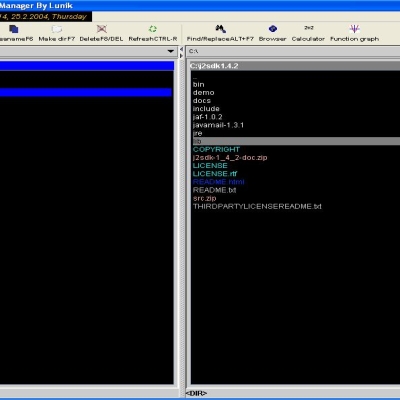
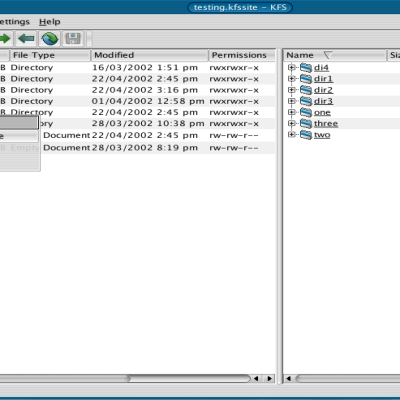

Ratings & Comments
60 Comments
KToshiba(7922): net.sourceforge.ktoshiba.ktoshhelper.toggletouchpad failed "" ( 3 ) KToshiba(7922): net.sourceforge.ktoshiba.ktoshhelper.seteco failed "" ( 6 ) KToshiba(7922): net.sourceforge.ktoshiba.ktoshhelper.setkbdmode failed Toggle touchpad doesn't work and toggle ecomode only shows the beamer icon. I'm on SuSE 13.2 installed still on the Z930
Try the new version, fixes were made there regarding some of the issues mentioned here. Packages from the build service are ready.
Tested last version with no effort. Mentioned hotkeys still don't work. I got the onscreen icon with beamer, underlying I could see the other icons changing. Using the context menue increased cpu frequency to the max, causing my fan to start, which is very rare on Z models. Current states of kbd backlight and power mode is not visible. The ECO light turned on shortly. Stopping and deinstallation helped to return to normal state. BTW. Pressing the ECO button outputs my hosts file.
Hi there, Sorry for the late reply, can you try the SVN snapshot 211 from the SF.net code page? I would like to know if the issue still persists there. Cheers Azael
Hello, KDE brightness doesn't work. Widget shows up and percentage changes, but no result on brightness. So I gave KToshiba a try, but it gives me the following error on pressing FN+F2: KToshiba(4110): "org.freedesktop.DBus.Error.UnknownObject" Message: "No such object path '/org/kde/Solid/PowerManagement/Actions/KeyboardBrightnessControl although the widget appears and I can switch through the modes, but again no change in brightness. Any suggestions?
Sorry for the late reply (I'm on vacations). KToshiba does not handle brightness directly, instead it relies on KDE and DBus to perform certain actions (like brightness). Which icon is on top of FN-F2, a bulb or a brightness one (wheel with triangle)? What is the output of: ls /sys/class/backlight Some Toshiba laptops come with broken backlight AML code, I have a patch ready to be sent to the kernel. Cheers
Hello, the problem could be solved by adding acpi_backlight=vendor to the kernel command line. Now FN+F2 changes brightness according to the modes. Even the KDE slider is working now.
system: opensuse 11.1 KDE 4.3 b2 # hald --version HAL package version: 0.5.12 # uname -a Linux linux-giq8 2.6.30-5-default #1 SMP Fri Jun 26 01:49:07 MSD 2009 i686 i686 i386 GNU/Linux steps i made : mkdir build && cd build cmake .. make sudo make install ktoshiba an icon appeared in my system tray(Grey Fn key). but keys Fn+F1(lock screen) Fn+F3(suspend to ram) and Fn+F4(suspend to HDD) does not react
Forgot to tell my laptop model: toshiba satellite L300-110
Hi there: Try the code from SVN, from Konsole do: svn co https://ktoshiba.svn.sourceforge.net/svnroot/ktoshiba/branches/KToshiba/0.4.0 ktoshiba mkdir ktoshiba/build && cd ktoshiba/build cmake .. make ./src/ktoshiba Once running, see if it outputs any errors or messages and try pressing the Fn combos again. KToshiba listen to computer_logicaldev_input_2 and platform_i8042_i8042_KBD_port_logicaldev_input HAL devices to receive hotkey events, to know which HAL device your laptop's sending events to, open a tab on the existing Konsole (Ctrl+Shift+N) or open a new one and type: lshal -m once done it, press an Fn combo (eg: Fn-F1) and you should get something like this: Start monitoring devicelist: ------------------------------------------------- 22:23:32.859: computer_logicaldev_input_2 condition ButtonPressed = coffee If your device is different from the ones above, then let me know so I can add it too. Saludos Azael
Hi. This version from svn complains on cmake stage: CMake Error at /usr/share/cmake/Modules/FindPackageHandleStandardArgs.cmake:57 (MESSAGE): Could NOT find LibKNotificationItem-1 (missing: LIBKNOTIFICATIONITEM-1_LIBRARY LIBKNOTIFICATIONITEM-1_INCLUDE_DIR) Call Stack (most recent call first): cmake/modules/FindLibKNotificationItem-1.cmake:35 (find_package_handle_standard_args) src/CMakeLists.txt:5 (find_package) I have this version of libknotificationitem installed: # rpm -qi libknotificationitem-1-1 Name : libknotificationitem-1-1 Relocations: (not relocatable) Version : 4.2.96 Vendor: openSUSE Build Service Release : 15.1 Build Date: Wed 08 Jul 2009 11:59:40 PM MSD Install Date: Tue 21 Jul 2009 01:43:34 PM MSD Build Host: build24 Group : System/GUI/KDE Source RPM: kdelibs4-experimental-4.2.96-15.1.src.rpm Size : 92332 License: LGPL v2.1 or later Signature : DSA/SHA1, Wed 08 Jul 2009 11:59:59 PM MSD, Key ID 58d8ff412e1efa87 URL : http://www.kde.org Summary : KDE Base Libraries Description : This package contains the basic packages of the K Desktop Environment. It contains the necessary libraries for the KDE desktop. This package is absolutely necessary for using graphical KDE applications. Authors: -------- The KDE Team <kde@kde.org> Distribution: KDE:KDE4:Factory:Desktop / openSUSE_11.1
I'm not sure about that error, I'm using openSUSE 11.1 as well, but I'm using KDE4 rc2 and don't have those problems. Try upgrading to rc2 (or even wait for rc3) and see if it solves the cmake problems. Oh, and make sure you have the -devel package installed as well. Saludos Azael
oh, shure. -devel package was needed. so i built it and here what i got when launch: #./src/ktoshiba checkWireless Error: org.freedesktop.DBus.Error.ServiceUnknown Message: The name org.freedesktop.NetworkManager was not provided by any .service files ummm... networkmanager? currently i don't use it, i have static configuration. is there really a point in networkmanager dependency?
For the moment yes. Since NetworkManager provides a D-Bus call that can do the job, and I haven't found any other service that provides the same functionality. If you (or someone else) knows of another D-Bus service that provides a similar functionality not dependable on NetworkManager, let me know. And for the time being you can live w/o Fn-F8 support, unless using NM. Saludos
Well, it returns the same error to me, I'm using KDE4.2.4, seen that knotificationitem will be insert the next KDE release(I mean, KDE4.3) in the kdelibs package I'll wait KDE4.3, I tried to compile by hand kdelibs-experimental_4.2.95, well, it returns an error too, but it's normal 'cause they require some dependence that I haven't got yet(using KDE4.2.4), this software will work on KDE4.3 for sure. :) I've a question to ask to the developer of this software, can I package it for slackware? I mean, the next slackware release(13.0) will have KDE 4.2.4(or 4.2.5), seen that I'm in -current for 1 year can I package it for you? You should know that in slackware there are compilations really made well by packagers, it consists in making a script bash that makes a package and a clean installation for the programs, look at a slackbuild(on slackbuilds.org or slacky.eu) to see how it's made :) This might be useful for you and for users, maybe it will insert in some slackware-current repository(unofficial obviously), tell me what you think, I ca do it for you :) . Regards, metrofox.
#lshal -m Start monitoring devicelist: ------------------------------------------------- 14:47:16.354: platform_i8042_i8042_KBD_port_logicaldev_input condition ButtonPressed = sleep l So: Fn+F3 (suspend to ram) gives me this : platform_i8042_i8042_KBD_port_logicaldev_input condition ButtonPressed = sleep Fn+F4 (suspend to HDD) gives me nothing at all Fn+F1 (lock screen) gives me 'l' symbol (latin letter)[wtf?] And i probably must notice, that volume control keys work just fine: #lshal -m Start monitoring devicelist: ------------------------------------------------- 14:50:40.466: platform_i8042_i8042_KBD_port_logicaldev_input condition ButtonPressed = mute 14:50:45.328: platform_i8042_i8042_KBD_port_logicaldev_input condition ButtonPressed = volume-up 14:50:47.985: platform_i8042_i8042_KBD_port_logicaldev_input condition ButtonPressed = volume-down Mute is Fn+Esc, and vol-up/down are triggered by vol slider on the front All these actions actually perform volume up\down\mute on my kde desktop. Though i don't know, what module is responsible for this.
That Fn-F1 giving you an "l" key is familiar, and I've seen it even w/ my laptop (X205-S9800) before the hotkeys were handled by the kernel drivers. Which kernel driver are you using, toshiba_acpi or omnibook? If the hotkeys are being processed by a kernel driver, then you just need to map them to the appropriate keycodes, check dmesg for something like this: atkbd.c: Unknown key released (translated set 2, code 0x6e on isa0060/serio0). atkbd.c: Use 'setkeycodes 6e <keycode>' to make it known. Whenever you press Fn-F4 or other Fn-Fsomething key. And if that is the case, you might need to edit and/or create an FDI file, so HAL can pick it up and map those keys for you. Saludos Azael
That Fn-F1 giving you an "l" key is familiar, and I've seen it even w/ my laptop (X205-S9800) before the hotkeys were handled by the kernel drivers. Which kernel driver are you using, toshiba_acpi or omnibook? If the hotkeys are being processed by a kernel driver, then you just need to map them to the appropriate keycodes, check dmesg for something like this: atkbd.c: Unknown key released (translated set 2, code 0x6e on isa0060/serio0). atkbd.c: Use 'setkeycodes 6e <keycode>' to make it known. Whenever you press Fn-F4 or other Fn-Fsomething key. And if that is the case, you might need to edit and/or create an FDI file, so HAL can pick it up and map those keys for you. Saludos Azael
That Fn-F1 giving you an "l" key is familiar, and I've seen it even w/ my laptop (X205-S9800) before the hotkeys were handled by the kernel drivers. Which kernel driver are you using, toshiba_acpi or omnibook? If the hotkeys are being processed by a kernel driver, then you just need to map them to the appropriate keycodes, check dmesg for something like this: atkbd.c: Unknown key released (translated set 2, code 0x6e on isa0060/serio0). atkbd.c: Use 'setkeycodes 6e <keycode>' to make it known. Whenever you press Fn-F4 or other Fn-Fsomething key. And if that is the case, you might need to edit and/or create an FDI file, so HAL can pick it up and map those keys for you. Saludos Azael
i have toshiba_acpi.ko there: # ls /lib/modules/2.6.30-5-default/kernel/drivers/platform/x86/ acer-wmi.ko compal-laptop.ko eeepc-laptop.ko hp-wmi.ko msi-laptop.ko sony-laptop.ko thinkpad_acpi.ko wmi.ko asus-laptop.ko dell-laptop.ko fujitsu-laptop.ko intel_menlow.ko panasonic-laptop.ko tc1100-wmi.ko toshiba_acpi.ko but it throws an error, when i try to load it: # modprobe toshiba_acpi WARNING: All config files need .conf: /etc/modprobe.d/thinkpad_acpi, it will be ignored in a future release. WARNING: All config files need .conf: /etc/modprobe.d/sound, it will be ignored in a future release. WARNING: All config files need .conf: /etc/modprobe.d/blacklist, it will be ignored in a future release. WARNING: All config files need .conf: /etc/modprobe.d/prism54, it will be ignored in a future release. WARNING: All config files need .conf: /etc/modprobe.d/pnp-aliases, it will be ignored in a future release. WARNING: All config files need .conf: /etc/modprobe.d/ipw2200, it will be ignored in a future release. WARNING: All config files need .conf: /etc/modprobe.d/pam_fp-uinput, it will be ignored in a future release. WARNING: All config files need .conf: /etc/modprobe.d/tv, it will be ignored in a future release. WARNING: All config files need .conf: /etc/modprobe.d/ipv6, it will be ignored in a future release. WARNING: All config files need .conf: /etc/modprobe.d/ipw2100, it will be ignored in a future release. FATAL: Error inserting toshiba_acpi (/lib/modules/2.6.30-5-default/kernel/drivers/platform/x86/toshiba_acpi.ko): No such device maybe you have any clue?
Ugly, after a quick Google search, it seems that your laptop uses an Insyde H2O BIOS, thats why toshiba_acpi is not working (and probably will never do...). Your chances are w/ the omnibook module, grab it from trunk and test it. It is a messy job, but hopefully at the end you can have your laptop Fn keys supported (as well as some other stuff). Write me to my e-mail (listed above) and I will try to help you set up the omnibook module. Saludos
well, i just installed onnibook from svn. it loaded with modprobe without errors (warnings about .conf prefixes don't count) but the situation with lshal does not changed: "lshal -m" still prints 'l' symbol for Fn+F1 and so on good news, that ktoshiba from svn launched (i didn't noticed that - i thought that warning about absent networkmanager was an error) But ktoshiba acts strange: when i press Fn+F3(Sleep. The only key, that correctly recognized by lshal as "platform_i8042_i8042_KBD_port_logicaldev_input condition ButtonPressed = sleep") ktoshiba locks the screen... i thought it must be sleep.
Yes that is expected for the omnibook module, once installed, here comes the tedious part of it, do as follows:modprobe omnibook
dmesg | grep "omnibook: Enabled features"
For me this is what it outputs:
The support we are looking for is "hotkeys". You probably just have "dmi" and "version"
Heres what you have to do:
modprobe omnibook ectype=10
dmesg | grep "omnibook: Enabled features"
rmmod omnibook
Do that w/ every ectype starting w/ ectype=10 all the way to ectype=15 (told ya it was tediuos work...)
And email me the results, since I can't seem to post more replies here.
And now, for the sleep key, it does what is is supposed to do, but you computer might not have sleep support yet.
Saludos
Hi, Thank you very much for your application. It is a must have for all toshiba notebook owners. Just wanted to make few notes/suggestions. 1. The machine model is not correctly recognized - it says Tecra M2/Sattelitte and it should say Tecra M4. 2. Enabling of bluetooth does not work. 3. Changing of battery save mode does not work.(does not cycle, only full power is selected) 4. It allows me to choose hyperthreading which is not available on my CPU. 5. On this machine there is Fn-Space, Fn-1, and Fn-2 which can be used as function keys too. Using toshset command line utility I can enable bluetooth, also I can change the battery save mode without problem. I will be glad if I can help with anything to further develop this app. Hope you can note these in the next version. Keep up the good work Cheers
Hi there, 1. Well, the machine id number is shared between several models and I might not have your model name on my list. I'll add it, thanks for the report. 2. Assign the Bluetooth On/Off to any Fn-F# key and press that ssigned key a couple times and send me the output of" 'cat .xsession-errors | grep ktoshiba' 3. For the BSM to work, the laptop must be running on batteries in order to cycle between the different modes, if indeed you laptop is running on batteries and it does not cicle, again, try changing the BSM and send me the output of the file mentioned on 2. 4. Again, send me the output of the stuff at 2. 5. Cool, just tell me what they are supposed to do and I'll try to implement the actions needed. I have plans to add a configuration dialog to all remaining Fn-something hotkeys, so that all the Fn combos can be used. Saludos Azael